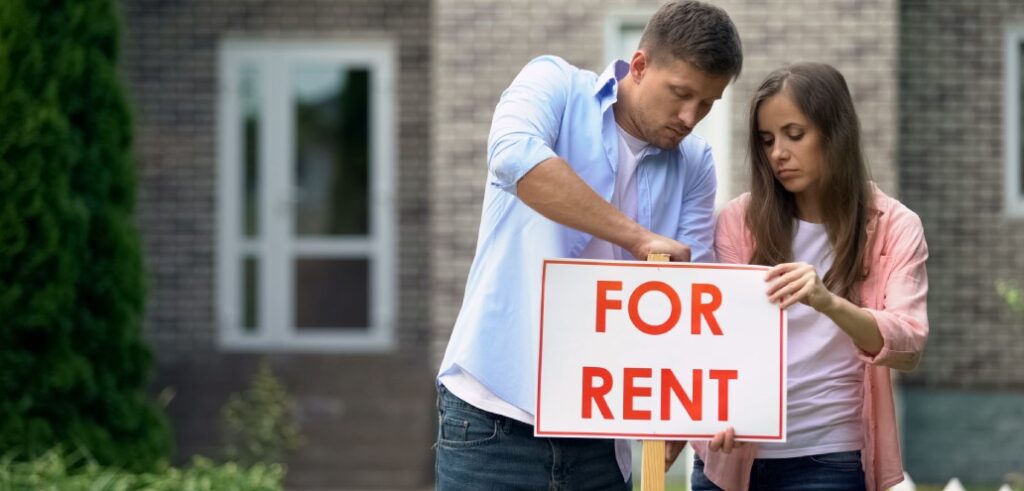Last Updated on February 23, 2024 by CREW Editorial
When lease renewal season rolls around, as a landlord, you’re not just ticking a box; you’re reassessing your business’s foothold in the commercial real estate market. It’s a strategic moment that could reshape your revenue and influence your portfolio’s future.
Starting early is key to staying ahead of the game. With the right approach, you can turn lease renewals into an opportunity to negotiate terms that better align with your business needs. Whether you’re overseeing commercial space in Edmonton, a condo in downtown Toronto, or a family home in Calgary, being well-informed puts you in a stronger position to secure a favourable outcome.
Understanding the Lease Renewal Process
Navigating lease renewals requires a grasp of the step-by-step process and the factors that influence it from a landlord’s perspective. Please note that rules can vary province by province, so please check your local laws regarding lease renewals.
Assess Your Current Position as a Landlord
Evaluate your portfolio’s performance and how each property accommodates your investment goals. Have market conditions shifted? Does each property still yield the expected returns, or is it time to reconsider your holdings? Being clear on your objectives will shape your approach to renewal discussions.
Review the Commercial Real Estate Market
Stay abreast of market trends. The commercial real estate climate can vary widely across Canada, affecting property values and rental demand. This information is critical in leveraging your position during renegotiation.
Formulate Your Strategy
Approach lease renewal with a clear strategy well before your lease expires. Typically, beginning discussions six to twelve months in advance is recommended. This window allows you ample time to understand the market, consider alternatives, and come to the table with a strong negotiating position.
Be Proactive with Tenants
Ensure tenants understand that renewal is often not automatic. If they sense you’re open to exploring other options, it may prompt more favorable terms. Having alternative options can give you an edge in securing a lease that reflects both current market conditions and your investment needs.
Monitor Market Opportunities
The economic climate and commercial real estate markets are continually changing, and sometimes favorable renegotiation opportunities arise before your lease reaches its end. Keep a vigilant watch on the market to capitalize on any such openings.

Communicating with Tenants
Providing Timely Notice
When it comes to initiating lease renewals, timeliness is crucial. You’ll need to provide tenants with ample notice before choosing to end their lease. This not only fosters a good landlord-tenant relationship but also complies with legal requirements. In most jurisdictions, statutes dictate the notice period; however, your specific lease agreement will detail the notice requirements you must adhere to. For a smoother renewal process, consider scheduling reminders well in advance of the lease expiry date.
Explaining the Terms of the Renewal
Renewal terms can often vary from those of the original lease, especially when it comes to rental rates and potential alterations. It’s essential to clearly communicate any changes in the renewal terms to your tenants. As a landlord, your objective should be to maintain transparency and avoid any misunderstandings that might arise. Explain to your tenants how the rental rate has been derived and what factors have influenced any changes. Ensure that all financial incentives offered during the initial term, such as tenant improvement allowances, are clearly defined and their continuity or exclusion in the renewal is understood.
Answering Tenant’s Questions and Concerns
Expect tenants to have questions and concerns about their lease renewal. They may inquire about potential rent increases, changes to lease conditions, or even the possibility of relocating depending on the new terms offered. Be ready to provide well-informed responses and to negotiate terms that are agreeable to both parties. It’s in your best interest to address these concerns promptly and effectively.
Assessing the Condition of the Rental Property
Conducting Inspections
Before initiating any lease renewal discussions, it’s imperative to conduct thorough inspections of the rental property. This practice ensures that the condition of the premises is adequately documented which in return can protect both your interests and those of the tenant. As a landlord in Canada, you have the legal right to enter the rental unit for inspections, provided you give the tenant 24 hours’ written notice. During these inspections, you’re looking to identify issues that go beyond normal wear and tear, such as large holes in walls or stains on the carpet.
An inspection report is a crucial tool in this process. It’s a detailed written account of the property’s state before the tenant moves in and should be repeated upon their exit. This report is beneficial for both parties as it is evidence of the property’s condition at the start of the tenancy and protects the security deposit from claims related to pre-existing damage.
Addressing Repairs and Maintenance Issues
Addressing maintenance issues ahead of lease renewals is non-negotiable. It ensures a safe and habitable space for your tenants and protects the value of your property. Under the law, tenants have the responsibility to keep their rental unit clean and need to repair or reimburse the cost of damage they cause. If the property requires repairs due to normal usage, it’s your responsibility to make those repairs in a timely fashion.
If maintenance issues are not addressed, tenants may apply to local Landlord and Tenant Boards (LTB), which can lead to various remedies such as rent abatements or prohibitions on rent increases until repairs are complete. Conversely, if tenants do not repair any damage they cause, you can apply to the LTB for them to be held accountable.
Negotiating the Renewal Terms
When it’s time to renew a lease, navigating the intricacies of the terms can be as crucial as the initial agreement. As you move forward, understanding and negotiating these terms effectively can be the difference between a seamless transition into a new lease period and unnecessary complications.
Rent Increases
Your approach to rent increases during lease renewal is pivotal. You’ll need to be abreast of legislative guidelines that dictate the terms of such increases. In many jurisdictions, there’s a cap on how much the rent can be hiked, generally tied to the Consumer Price Index (CPI).
When negotiating increases, ensure the rent remains competitive yet aligned with market conditions. Remember that any increase must be communicated with proper notice, and using the prescribed forms can help avoid disputes.

Conclusion
Lease renewals require diligence and attention to detail from the landlord’s perspective. By ensuring thorough property inspections and addressing maintenance issues promptly, you’ll set the stage for straightforward negotiations.
Remember to adhere to legislative guidelines when discussing rent increases and be clear about any new lease clauses. Accurate documentation is your safeguard against future misunderstandings, so make sure every aspect of the renewal agreement is meticulously recorded. Should disputes arise, you’re equipped with the knowledge to seek mediation or adjudication. With professional advice when necessary, you’ll maintain a positive landlord-tenant relationship and secure a lease renewal that benefits both parties.









